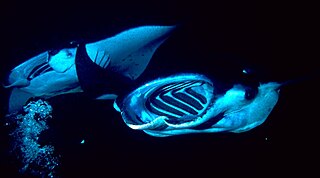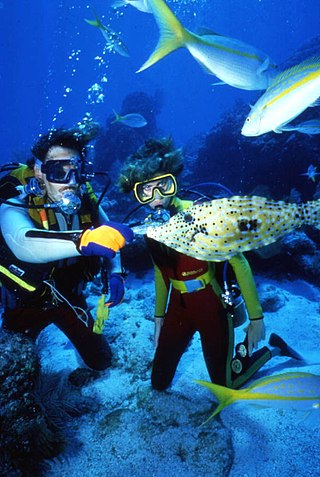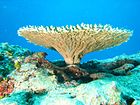Related Research Articles

The Professional Association of Diving Instructors (PADI) is a recreational diving membership and diver training organization founded in 1966 by John Cronin and Ralph Erickson. PADI courses range from entry level to advanced recreational diver certification. Further, they provide several diving skills courses connected with specific equipment or conditions, some diving related informational courses and a range of recreational diving instructor certifications. They also offer various technical diving courses. As of 2020, PADI claims to have issued 28 million scuba certifications. The levels are not specified and may include minor specialisations. Some of the certifications align with WRSTC and ISO standards, and these are recognised worldwide. Some other certification is unique to PADI and has no equivalence anywhere, or may be part of other agencies' standards for certification for more general diving skill levels.

Recreational diving or sport diving is diving for the purpose of leisure and enjoyment, usually when using scuba equipment. The term "recreational diving" may also be used in contradistinction to "technical diving", a more demanding aspect of recreational diving which requires more training and experience to develop the competence to reliably manage more complex equipment in the more hazardous conditions associated with the disciplines. Breath-hold diving for recreation also fits into the broader scope of the term, but this article covers the commonly used meaning of scuba diving for recreational purposes, where the diver is not constrained from making a direct near-vertical ascent to the surface at any point during the dive, and risk is considered low.

Marine conservation, also known as ocean conservation, is the protection and preservation of ecosystems in oceans and seas through planned management in order to prevent the over-exploitation of these marine resources. Marine conservation is informed by the study of marine plants and animal resources and ecosystem functions and is driven by response to the manifested negative effects seen in the environment such as species loss, habitat degradation and changes in ecosystem functions and focuses on limiting human-caused damage to marine ecosystems, restoring damaged marine ecosystems, and preserving vulnerable species and ecosystems of the marine life. Marine conservation is a relatively new discipline which has developed as a response to biological issues such as extinction and marine habitats change.

One of the first shark species to be protected was the grey nurse shark. The biology, distribution and conservation of this species are dealt with in the following paragraphs with a main focus on Australia as it was here it first became protected.

Shark tourism is a form of eco-tourism that allows people to dive with sharks in their natural environment. This benefits local shark populations by educating tourists and through funds raised by the shark tourism industry. Communities that previously relied on shark finning to make their livelihoods are able to make a larger profit from diving tours while protecting the local environment. People can get close to the sharks by free- or scuba diving or by entering the water in a protective cage for more aggressive species. Many of these dives are done by private companies and are often baited to ensure shark sightings, a practice which is highly controversial and under review in many areas.
Wild Oceans, founded in 1973 by fishermen as the National Coalition for Marine Conservation (NCMC), is the United States's oldest public advocacy group dedicated exclusively to conserving ocean fish and their environment. Wild Oceans' mission is to build awareness of the threats to USA marine fisheries and convince policy-makers to restore and protect publicly owned fishery resources. Its efforts focus on stopping overfishing, reducing bykill caused by indiscriminate fishing gear, and stemming the loss of critical marine habitat.
Ocean Conservancy is a nonprofit environmental advocacy group based in Washington, D.C., United States. The organization seeks to promote healthy and diverse ocean ecosystems, prevent marine pollution, climate change and advocates against practices that threaten oceanic and human life.

Marine conservation activism is the efforts of non-governmental organizations and individuals to bring about social and political change in the area of marine conservation. Marine conservation is properly conceived as a set of management strategies for the protection and preservation of ecosystems in oceans and seas. Activists raise public awareness and support for conservation, while pushing governments and corporations to practice sound ocean management, create conservation policy, and enforce existing laws and policy through effective regulation. There are many different kinds of organizations and agencies that work toward these common goals. They all are a part of the growing movement that is ocean conservation. These organizations fight for many causes including stopping pollution, overfishing, whaling and by-catching, and supporting marine protected areas.

The environmental impact of fishing includes issues such as the availability of fish, overfishing, fisheries, and fisheries management; as well as the impact of industrial fishing on other elements of the environment, such as bycatch. These issues are part of marine conservation, and are addressed in fisheries science programs. According to a 2019 FAO report, global production of fish, crustaceans, molluscs and other aquatic animals has continued to grow and reached 172.6 million tonnes in 2017, with an increase of 4.1 percent compared with 2016. There is a growing gap between the supply of fish and demand, due in part to world population growth.

Reef Check is an international non-governmental organization dedicated to the conservation of two reef ecosystems: tropical coral reefs and Californian rocky reefs. The Foundation is headquartered in Los Angeles, California, United States, but uses data from volunteer scuba diver teams in over 80 countries, ranging from Australia, Japan, to even Germany. It is the United Nations’ official coral reef monitoring program.
Green Fins is an approach to sustainable marine tourism activities operating in Southeast Asia, Caribbean and the Indian Ocean that works with business operators, communities and governments. It helps to implement environmental standards for the diving and snorkelling industry through a code of conduct. The overall aim of the initiative is to mitigate damaging impacts to the marine environment from the marine tourism sector and improve sustainability. The code of conduct is a set of 15 points designed to tackle the most common and detrimental effects of scuba diving and snorkelling activities on the habitat in which they operate.

A manta ray night dive is a scuba diving or snorkeling excursion to view manta rays at night.
Lesley Rochat is a South African marine and shark conservationist, campaigner, wildlife filmmaker, underwater photographer, environmental writer, author, speaker and activist. She founded the non-profit organisation AfriOceans Conservation Alliance in 2003 for which she is the chief executive officer.
Diamond Reef System, including each individual Hover Station and the new Multi-Portal System, are trademarked, skill evaluation and safety-based diving curriculums that utilize the world's first portable, collapsible underwater obstacle course to simulate fragile reef or dive wreck structure for diver buoyancy skill and underwater photography training. A form of scuba Gymkhana, the program was designed by Pete Wallingford in 1988 to educate scuba instructors and scuba divers on how to safely teach and promote situational awareness, proper body positioning and safe interaction with coral reefs, fragile marine ecosystems and shipwrecks. The program was adopted by the Environmental Protection Agency, the National Oceanic and Atmospheric Administration, dive store operators and dive resort/charter operators worldwide.

The environmental impact of recreational diving is the effects of recreational scuba diving on the underwater environment, which is largely the effects of diving tourism on the marine environment. It is not uncommon for highly trafficked dive destinations to have more adverse effects with visible signs of diving's negative impacts due in large part to divers who have not been trained to sufficient competence in the skills required for the local environment, an inadequate pre-dive orientation, or lack of a basic understanding of biodiversity and the delicate balance of aquatic ecosystems. There may also be indirect positive effects as the environment is recognised by the local communities to be worth more in good condition than degraded by inappropriate use, and conservation efforts get support from dive communities who promote environmental awareness, and teach low impact diving and the importance of respecting marine life. There are also global coral reef monitoring networks in place which include local volunteer divers assisting in the collection of data for scientific monitoring of coral reef systems, which may eventually have a net positive impact on the environment.
Low impact diving is recreational scuba diving that is intended to minimise environmental impact by using techniques and procedures that reduce the adverse effects on the environment to the minimum that is reasonably practicable for the situation. To a large extent this is achieved by avoiding contact with sensitive reef life, but it also applies to diving on historical wrecks and in caves with delicate rock formations. It is in the interests of diving tourism service providers to help protect the condition of the dive sites on which their businesses rely. They can contribute by encouraging and teaching low impact diving and following best-practice procedures for diving in sensitive areas. Low impact diving training has been shown to be effective in reducing diver contact with the bottom, the most common cause of reef damage.

Winifred "Wendy" Benchley is a marine and environmental conservation advocate and former councilwoman from New Jersey. She is known for co-founding various environmental organizations and for being the wife of author Peter Benchley.

Valerie May Taylor AM is an Australian conservationist, photographer, and filmmaker, and an inaugural member of the diving hall of fame. With her husband Ron Taylor, she made documentaries about sharks, and filmed sequences for films including Jaws (1975).

The Women Divers Hall of Fame (WDHOF) is an international honor society. Its purpose is to honor the accomplishments of women divers, and their contributions to various fields of underwater diving. Full membership is restricted to nominees who have been found to meet the WDHOF's criteria, which include being an underwater diver and having contributed to diving in ways recognised as being significant.
The American Littoral Society is an American conservation, research, and education organization focused on the Intertidal zone and coastal habitats. It was founded in 1961 and is headquartered on Sandy Hook in New Jersey in a building that was formerly Army barracks.
References
- ↑ "Project AWARE® Announces Danna Moore as New Director of Global Operations". Project AWARE. Retrieved 10 October 2017.
- ↑ "Our Story". Project AWARE. Archived from the original on 9 February 2016. Retrieved 3 February 2016.
- ↑ Cater, C; Cater, E (2001). Marine environments In: Weaver, DB. The Encyclopedia of Ecotourism. p. 271. ISBN 0851993680 . Retrieved 2014-03-18.
- ↑ padiproseurope (2021-04-21). "PADI and PADI AWARE Foundation Announce Blueprint for Ocean Action". PADI Pros. Retrieved 2022-11-29.
- ↑ PADI. "PADI Mobilizes Ocean Community with New PADI AWARE Foundation". www.prnewswire.com. Retrieved 2024-03-15.
- ↑ "AWARE: Marine Debris Program". PADI. Retrieved 2022-11-29.
- ↑ "AWARE: Shark & Ray Program". PADI. Retrieved 2022-11-29.
- ↑ "Meet Your 2022 AWARE Grantees". PADI. Retrieved 2022-11-29.
- ↑ "Marine Protected Areas". PADI. Retrieved 2022-11-29.
- ↑ "Dive Against Debris® Map | PADI AWARE". www.diveagainstdebris.org. Retrieved 2022-11-29.
- ↑ Roman, Lauren; Hardesty, Britta Denise; Leonard, George H.; Pragnell-Raasch, Hannah; Mallos, Nicholas; Campbell, Ian; Wilcox, Chris (2020-09-01). "A global assessment of the relationship between anthropogenic debris on land and the seafloor". Environmental Pollution. 264: 114663. doi:10.1016/j.envpol.2020.114663. ISSN 0269-7491. PMID 32388297. S2CID 218585971.
- ↑ "Mako Sharks Win International Protection - DeeperBlue.com". www.deeperblue.com. 2021-11-30. Retrieved 2022-11-29.
- ↑ padiproseurope (2021-04-21). "PADI and PADI AWARE Foundation Announce Blueprint for Ocean Action". PADI Pros. Retrieved 2022-11-29.
- ↑ "Meet Your 2022 AWARE Grantees". PADI. Retrieved 2022-11-29.
- ↑ Staff, DIVE (2022-06-15). "PADI AWARE launches 'Adopt the Blue' programme". DIVE Magazine. Retrieved 2022-11-29.
- ↑ "A year in review" (PDF). 2014. Retrieved 3 February 2016.
